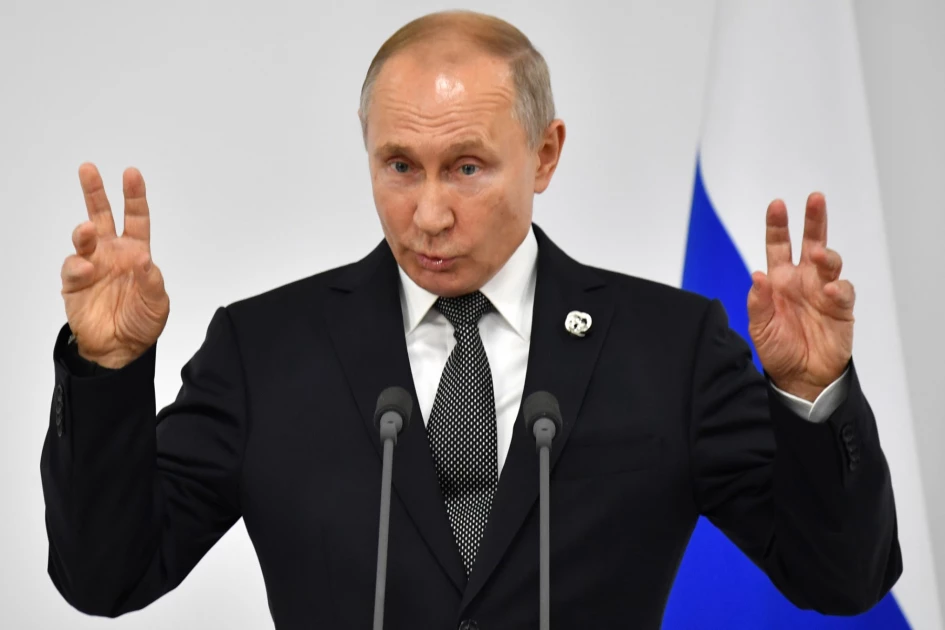OPINION: 5 reasons Russia remains a riddle, wrapped in a mystery, inside an enigma

Russian President Vladimir Putin speaks during his press conference on the sidelines of the G-20 summit in Osaka, 2019. (Photo by Yuri KADOBNOV / POOL / AFP)

Audio By Vocalize
Winston Churchill's famous quote on Russia is an encapsulation of the complexity of a nation which has had a cacophony of trauma, tribulation, triumph and tragedy.
Here are five reasons why Russia remains a challenge to analyze in light of the recent attempted coup d'etat.
President Vladimir Putin's power and authority are being undermined by a private militia group with no consequences to the leader of the putsch.
Yevgeny Prigozhin and his private military company, Wagner Group, have attempted a heretofore unprecedented challenge to state power and have gotten away with it.
For now! It's not clear how long Mr. Prigozhin will remain alive in Belarus where Putin has allowed him a strategic retreat.
Second, not much is known about exactly how many casualties Russia has suffered in Ukraine. What is true by many estimates, is that the toll on the Russian military is high.
Prigozhin's rants against the top brass in the Russian military illustrate this frustration. It seems the military campaign in Ukraine is not going to plan.
The Russian army has been in Ukraine for over a year in what was thought to be a quick war. However, the US and NATO have been instrumental in supplying Ukraine with the military hardware to undermine the Russian army and truncate any quick Russian military victory.
This is to say, American covert action looks to bog Russia down in Ukraine and diminish Putin's popularity at home. Much like the US did in Afghanistan with the Soviet occupation of that country.
Through Pakistan, the US was able to back the Mujahideen to upset and frustrate the Russians and force their eventual withdrawal. It remains to be seen if Ukraine will become Putin's Waterloo.
Third, it's not clear what this rebellion by the Wagner Group does to the balance of power in Putin's administration.
Putin's expulsion of Prigozhin to Belarus when Prigozhin faced potential treason charges in Russia, appears to be a major climbdown by the Russian supremo at the Kremlin.
It is also not clear why Putin chose a rapprochement with Prigozhin rather than eliminate this threat once and for all.
Prigozhin might have won this battle, but unless he can topple Putin, his long-term safety will remain a major concern. This is particularly true since Belarus is considered a proxy state for Russian adventurism in Ukraine.
What this revolt by the Wagner Group shows, is how a state's support for a non-state actor like a private military company, can become a dangerous gamble when it metastasises into a Frankenstein that is hard to tame.
Putin has benefitted from the spoils and plausible deniability delivered by the Wagner Group from crisis spots as diverse as Syria, Ukraine, Chad, Mozambique, Mali and Chechnya.
However, this group has become powerful enough in Russia to take on the Russian military and force Putin to compromise. Prigozhin has threatened the legitimacy of Russian political institutions and the Putin administration.
Lastly, it's not clear what effect this attempted coup d'etat will have on the top brass of the Russian military.
For instance, this event could lead to top commanders like Valerie Grasimov or Sergei Choigu coming together to topple Putin.
Russia has a long history of military defeats being critical junctures for political change and toppling of the country's leadership.
For example, the defeat of the Czar during the Russo-Japanese War of 1905, the Czar's humiliation and defeat during World War I at the hands of the German-Austria/Hungarian alliance, or Nikita Khrushchev's public humiliation at the hands of the US during the Cuban Missile Crisis that led to his removal from office in the former Soviet Union.
Russia has never had a democratic tradition since its formation. All its rulers are either despotic monarchs, ruthless dictators or authoritarians.
If this failed coup d'etat is a political transition, it could easily become very violent as factions in the Kremlin jostle for power.
These are interesting times in Russia. Prigozhin's antics don't make Putin look good.
However, these recent events, by no means mean an end to Putin's stranglehold of power. His regime appears to have suffered a bloody nose, not a broken back.
In the coming weeks, the Russian riddle, mystery and enigma will become more clear with the passage of time. For now, Putin remains. However, tomorrow is never promised.
Prof. Monda teaches political science, international relations, and foreign policy at the City University of New York. @dmonda1, davidmonda.com


Leave a Comment